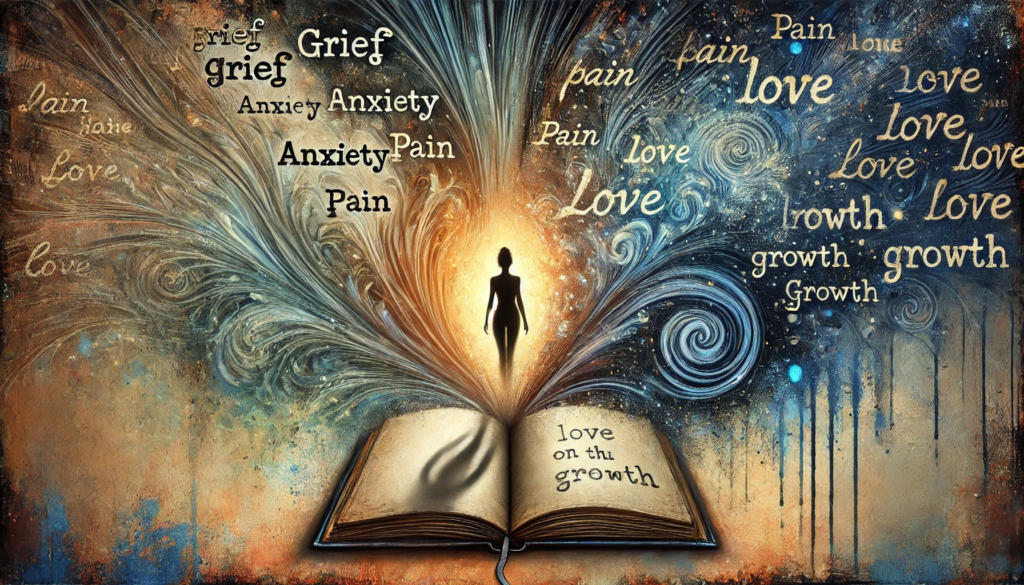Let me tell you a little something about how I process life—how I survive big emotions like grief, anxiety, anger, a. For me, it all comes out in words. Writing is my outlet, my release, my way of making sense of the chaos inside. When I sit down to write, the words don’t just trickle out—they pour, like a dam bursting open. Sometimes I’ll look back at what I’ve written, and I won’t even recognize it. I won’t remember how those words made it to the page, only that they did. And when I read them back, I’ll either laugh out loud or cry like I’m hearing someone else’s story. That’s the thing—when I’m deep in it, the writing just happens. It’s raw. It’s unfiltered. It’s me, fully exposed.
And those raw pieces? The ones where there’s no filter, no second-guessing? Those are the ones I share. Because they’re the best. They’re honest, they’re messy, they’re real. I might change the names, or maybe I’ll leave the names out entirely, but I’ll never dim my light or water down my truth just because it might make someone uncomfortable. This isn’t about them. This is about me, healing from my trauma. And I won’t re-traumatize myself just to protect someone else’s feelings.
Here’s the deal: if you read something I wrote and you think it’s about you—ask me. I’ll tell you. I’m not big on secrets. I don’t keep my important feelings to myself for a reason. If I’m upset, if my feelings are hurt, if I’m overwhelmed with joy, or if I’m just feeling something huge—I’m going to tell you. I’m going to say it. That’s how I grow, how I live, how I heal.
Now, do I go out of my way to hurt people? No. That’s old behavior I’ve worked damn hard to undo. If something I’ve said or written has hurt you, come to me. I promise you, that was never my intention. Especially in the last couple of years. But if you’re upset because you read a story and you think it’s about you, let me just say this: you might have missed the bigger picture.
For example, I posted something in the last 24 hours. It was about feeling like I’m not enough—like I’m dispensable, replaceable, unwanted, and unloved. And some people completely missed that. They read it and thought it was about them, about their actions, about their role in my story. But it wasn’t. It was about me. My feelings. My experience. And honestly? It was only made worse by the fact that they didn’t take the time to really hear what I was saying.
And let me add this: if you find yourself reading my words and they hit you in a way that makes you feel defensive, or makes you ask, “Is she talking about me?”—that’s a sign. A red flag, even. It’s a big neon arrow pointing to something inside of you that needs work. Because that right there? That’s projection. That’s guilt bubbling to the surface and trying to find a way to deflect what’s uncomfortable. That’s not my story—it’s yours.
So here’s what I want to say to anyone listening, reading, or scrolling: every once in a while, it’s not about you. Not every story I write is about someone else. Sometimes it’s just about the way I’m feeling—what I’m carrying, what I’m trying to release.
But if you’re not sure? If you read something and you think it might be about you? Ask me. Because I promise you, if it was about you, I would have already said it to your face. That’s who I am. I don’t hide the big stuff. I don’t muffle my feelings or pull punches just to keep the peace. And I certainly don’t censor my truth to make someone else feel comfortable in their ignorance.
My writing is for me. It’s how I heal, how I grow, how I take my pain and make it something beautiful, or funny, or heartbreaking. So if you’re reading my words and you’re tempted to make it about you? Just… take a step back. Put yourself aside for a moment. Because nine times out of ten? It’s not about you. And if it is, believe me—you’ll know.
